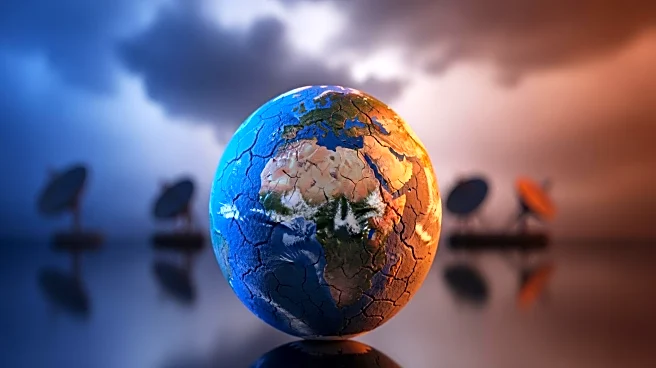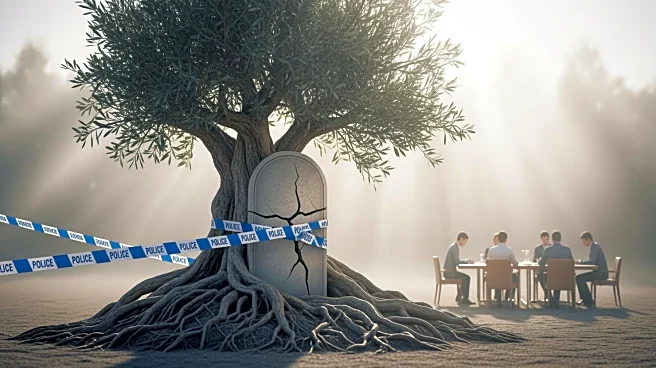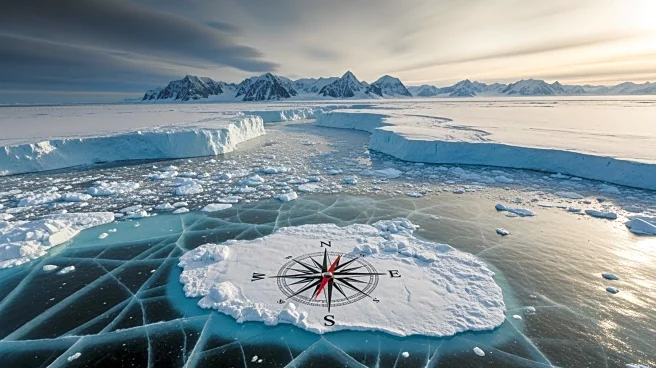What's Happening?
A recent global study published in the Nature journal highlights the alarming rate at which mountain glaciers are losing their ability to shield themselves from atmospheric warming. Led by Thomas E Shaw from the Institute of Science and Technology Austria, the research analyzed 3.7 million meteorological observations from 350 weather stations across 62 glaciers worldwide. The study reveals that the thin air layer above glaciers, which currently warms less than the surrounding atmosphere due to katabatic winds, is weakening. This phenomenon, known as 'temperature decoupling,' is expected to diminish by the 2040s, leading to accelerated glacier melting. The study projects that under high-emission scenarios, up to 84% of the world's 186,000 mountain glaciers could vanish by 2100.
Why It's Important?
The accelerated melting of glaciers poses significant threats to global climate stability and regional water cycles. As glaciers lose their natural cooling effect, mountain regions could experience altered precipitation patterns, increased glacial lake outburst floods, and intensified summer droughts. This could have profound impacts on water availability for millions of people living downstream, particularly in regions like South Asia where glaciers currently provide a protective buffer against warming. The study emphasizes the need for glacier and hydrological models to account for nonlinear responses to warming, as traditional projections may underestimate future ice loss.
What's Next?
The study calls for immediate integration of these findings into climate models to better predict future glacier behavior and its impact on global water cycles. Policymakers and environmental agencies may need to consider adaptive strategies to mitigate the effects of glacier loss, such as improving water management systems and investing in infrastructure to handle potential flooding. Additionally, international cooperation on climate action could be crucial in addressing the broader implications of glacier melting.
Beyond the Headlines
The loss of glaciers not only affects water cycles but also has cultural and ecological implications. Many communities view glaciers as integral to their cultural heritage and identity. The disappearance of these ice bodies could lead to a loss of biodiversity in mountain ecosystems, affecting species that rely on cold environments. Furthermore, the study highlights the role of glaciers in moderating local climates, suggesting that their loss could lead to more extreme weather conditions in mountainous regions.









